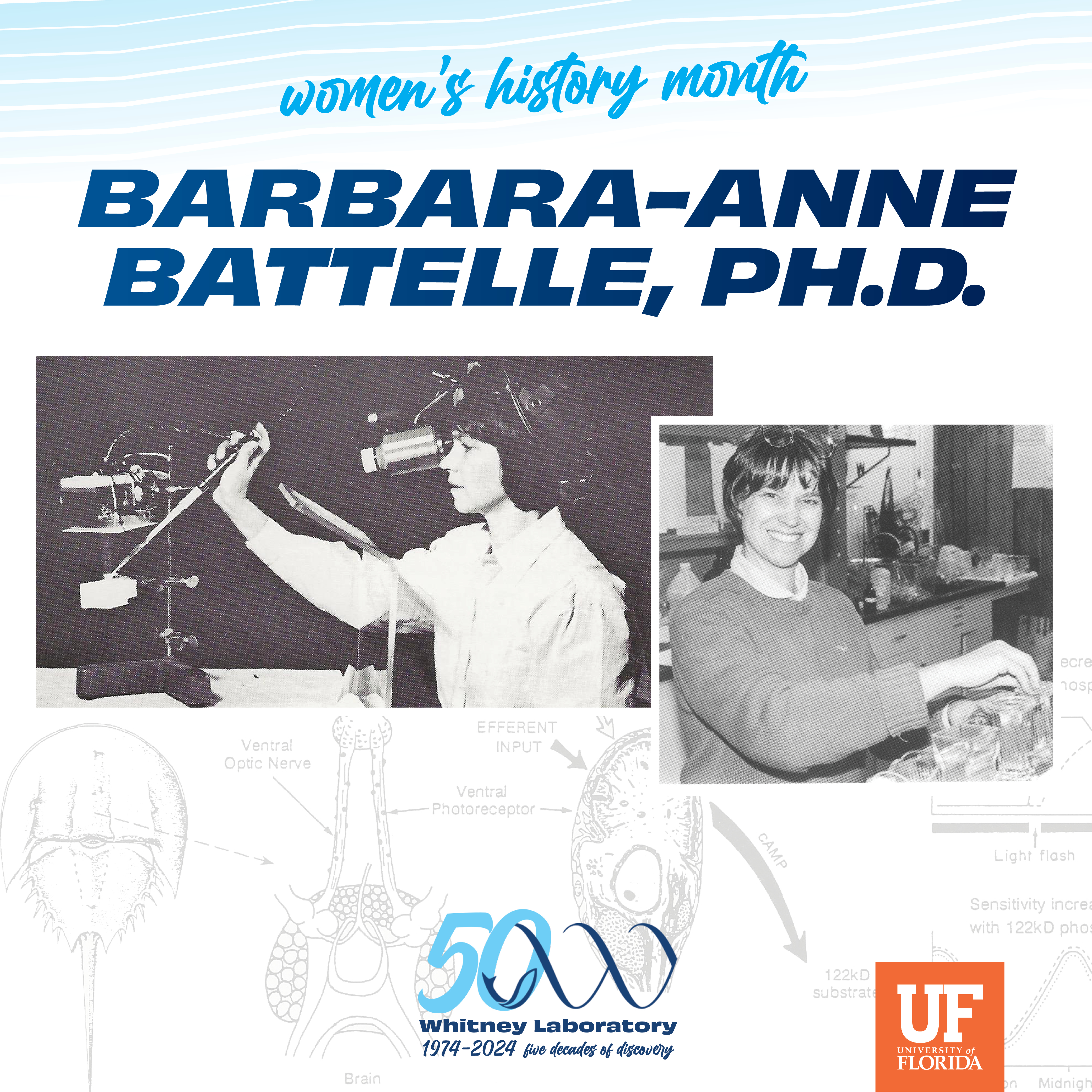 The Whitney Laboratory for Marine Bioscience
The Whitney Laboratory for Marine Bioscience

Whitney Laboratory celebrates Women's History Month - Join us throughout March as we celebrate women who have helped shape the Whitney Laboratory to what it is today!
Whitney Laboratory for Marine Bioscience
Dr. Barbara-Anne Battelle wasn’t just an outstanding researcher — she helped put the Whitney Lab on the map by developing an education program to enhance classroom instruction. Her creativity has inspired elementary school children and science researchers for over 30 years.
During her time at the Whitney Lab, Dr. Battelle used horseshoe crabs to learn about the biochemistry of vision. She characterized internal molecular timers that interact with light to help light-sensitive cells in the eye adapt to changing levels of light. These regulatory mechanisms are shared between many animals and are crucial for normal vision.
Between running a lab, conducting experiments, and writing grant proposals, Dr. Battelle also volunteered at her daughter’s elementary school. She noticed students struggling with science classes, and teachers would approach her, asking if the Whitney Lab had any programs to supplement the book-learning in the classroom. With no funds but a lot of grit, she spearheaded the Day at Whitney, an education program that lets children experience being a scientist for a day. Last year the lab celebrated the program’s 30 year anniversary.
“This all started from a couple of moms who recognized a need and decided to do something about it,” said Dr. Battelle. She designed activities to help kids “observe natural phenomena and ask questions.” Not every kid would leave wanting to be a scientist. But she was determined to give them a “cool” science experience to always remember.
Since joining the Whitney Lab in 1985, Dr. Battelle worked tirelessly to improve science communication skills of the Whitney Lab community. In recognition of her contribution to professional development, the lab established the Dr. Barbara Anne Battelle Excellence in Science Communication Award in 2015. Dr. Battelle, now a retired professor emerita, continues to attend many of the weekly presentations by the lab’s current researchers and asks penetrating questions about how their science impacts their respective research fields and, to a greater extent, society at large.